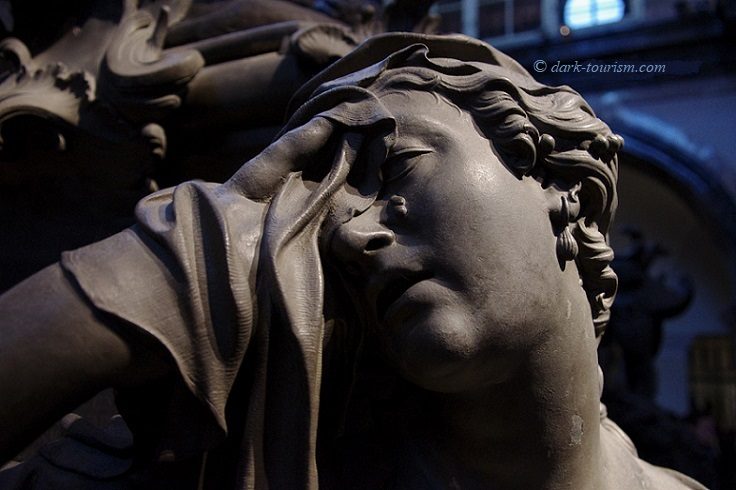|
Sobibor, Sisian, Artsakh and a new poll
| |

|
This week saw two new blog posts again, the first one came on 14 October – as that was the 77th anniversary of the revolt at the death camp of Sobibor in 1943. I gave a summary of the history of the camp and of this most successful revolt and escape from any such camp during the Second World War. I illustrated the post with a series of photos I had taken way back in 2008. Note, though, that the site is currently undergoing a substantial transformation with the construction of an all-new museum. While this work is ongoing the site is closed to the public (not that travelling to it would be an option at the moment anyway). This dark, but also touchingly heroic story of the Sobibor revolt (rare enough in the context of the Holocaust) later inspired books and movies, and the latest of these, the Russian production simply entitled Sobibor, was what I watched at home in preparation for the post. It’s tough watching but mostly well made. I recommend it. The same also goes for the older 1987 British TV production Escape from Sobibor. I know from my wife what an impact that had made on her at the time – it basically alerted her to the whole topic of the ‘Final Solution’, about which, she says, as good as nothing featured in her history classes at school. Given that studies have found that too many British youngsters today know shockingly little about the Holocaust, I guess not much has changed in that respect. While the Sobibor post was completely new, originally written but also rather text-heavy, this week’s second post, which went online yesterday, was based on my archive of posts from my former DT page purged from Facebook and featured less text and a series of photos about/from the small town of Sisian in south-eastern Armenia. This choice was partly inspired by the ongoing tragic news from Nagorno-Karabakh about the rekindled military conflict in that region in the Caucasus, especially in this report (external link). Sisian was the town I stayed in after my four days in Nagorno-Karabakh back in 2010. That’s the connection. And I wonder how badly affected poor little Sisian is now by this nearby conflict and the bitter outlook of that war possibly escalating further.
In order to dampen all those depressing things, I launched a new poll for a themed post to feature on the blog. As promised last time around, two options from then make a return here, because both had come close to winning but didn’t. Here we go – which of these four options would you most like to see featured as a special post on this blog:
a) dark tourism and clothes b) dark tourism and spheres c) dark tourism and arches d) dark tourism and lakes
Please make your choice by either leaving a comment on the blog post or by replying to this newsletter email!
Finally, I have to report back about that political election I mentioned last Sunday in which I was at least in part allowed to vote in myself here in the city of Vienna. And that also explains the photo above, as that was taken in the Imperial Crypt here in this city.
The election result for Vienna was a disaster for the far-right-wing party FPÖ, which lost massively, from over 30% last time to just over 7% now; in the district that I live in, the party’s fall was even deeper. Almost all other parties benefited more or less; but, as is an age-old tradition in “Red Vienna”, the Social Democrats SPÖ won the lion’s share of the vote, with almost 42% this time around (that’s a figure that the German equivalent, the SPD, the oldest political party in Germany, could these days only dream of in most places). The choice of photo above was inspired by a) the blue light of the background (as that’s the FPÖ’s colour, hence aka “die Blauen”, ‘the blue ones’ … although in German German that could also mean ‘the drunk ones’) and b) those cast-iron tears. Am I rubbing it in? Yes. With glee. And it goes on: the most significant reason for the FPÖ getting thrashed is generally seen in the “Ibiza affair” that former party chief HC Strache found himself in last year (after a video came out showing him involved in corruption practices at a private gathering on that island that turned out to have been a kind of sting operation, a set-up, intended to expose the party chief’s political morals, or lack thereof). This also led to the collapse of the then coalition government of Austria. Strache was eventually expelled from the FPÖ and subsequently founded his own party for this election. In his typical modesty he named that party after himself: “HC” (i.e. after the initials of his given names: Heinz-Christian). He, or his eponymous party, got 3.27% of the vote and hence failed to win a single seat, which I presume would have been taken by himself. Now that’s not to be. Good. I normally abstain from comments about current party politics in DT contexts, but for Strache I had to make an exception in this case. May he now please honour his promise to retire from politics – as he had already announced after his expulsion from his old party. Now it really is time to go. Period.
|